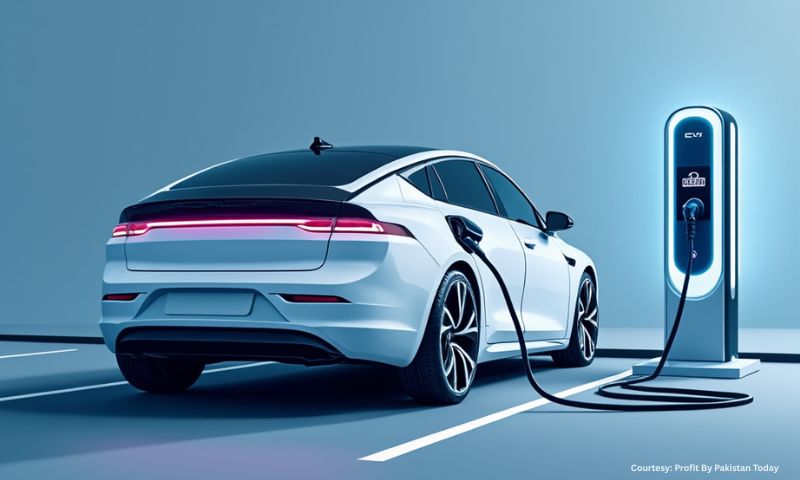ISLAMABAD – In a bid to reduce carbon emissions and boost modern transport, the federal government has unveiled the country’s first National Electric Vehicle (EV) Policy, aiming to transform mobility and energy use nationwide.
The policy lays out a multi-pronged strategy:
- Reducing import duties and registration fees for electric cars, motorcycles, and rickshaws
- Incentivising local assembly through reduced taxes and simplified regulations
- Investing in charging infrastructure, with plans to install public and private chargers along highways and in major cities
- Partnering with private enterprises to encourage innovation in EV batteries, spare parts, and green financing
- Training workforce and technicians, with support for vocational centres and technical colleges to offer EV-related courses
Officials say the policy’s success will hinge on collaboration between federal and provincial authorities to ensure seamless implementation. They also aim to partner with international bodies to secure technical expertise and investment.
Analysts view this policy as a timely step toward modernising Pakistan’s transport sector—currently responsible for a large share of urban air pollution and fossil fuel dependency. They point out that lower import duties will make EVs more affordable for consumers, while local industry growth could create jobs and reduce reliance on fuel imports.
However, challenges remain: a fragmented power grid may struggle with sudden increases in electricity demand, while consumer awareness about EV ownership and maintenance continues to lag.
The government plans regular reviews of policy progress and market adoption, alongside pilot projects in select cities to refine regulation and gauge infrastructure readiness.
This story has been reported by PakTribune. All rights reserved.



